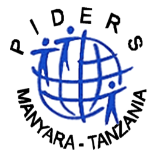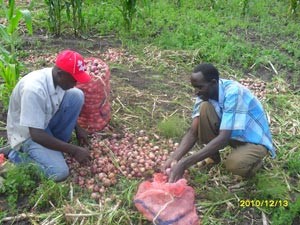A few words about
What We Do
Our projects
Our organization is involved in numerous projects.
A number of principles form the basis for all PIDERS work in development and responding to emergencies. These are:
Significant scope / significant impact/ fundamental change.
Program / projects must address problems that are common to a large people / community, so that PIDERS impact is significant. The changes that are induced as a result of project activities must be lasting; fundamentally changing the circumstances of PIDERS impact is significant. The changes that are induced as a result of project activities must be lasting, fundamentally changing the circumstances of PIDERS target group in a positive way.
Targeting low Income or Marginalized Households.
Program must benefit the people who need help the most.
Involvement of and impact on women.
Program must measure in advance the impact of activities on women and offer them participation and access to its projects.
Participation of stakeholders / Partnerships / sustainability of impact.
Programs design, implementation and evaluation must fully involve all stakeholders in project activities including beneficiaries implementing partners, and donors. All of PIDERS program will involve strengthening partners such as Groups, CBOs, to be able to continue otherwise producing the benefits introduced by project. Program must be designed so that the benefits continue to flow to PIDERS target group even after the project activities have been completed.
Reliability / Adaptability.
Program must serve as models that can be copied and replaced by people faced with similar problems elsewhere.
Agriculture
MIVARF: The Government of Tanzania (GoT) has proposed the construction of feeder roads, market centers and storage facilities to improve farmers’ access to markets and increase share of value added of small- and medium-scale producers which will ultimately enhance food security and improve the socio-economic welfare of the farmers and small- and medium- scale producers through increase in household income. This will in turn contribute to the Government’s efforts in reducing poverty and in accelerating economic growth on a sustainable basis in Tanzania. The Programme – Marketing Infrastructure, Value Addition and Rural Finance Programme (MIVARF) is a follow-up to the Bank and IFAD financed Agricultural Marketing Systems Development Programme (AMSDP) which successfully achieved its development objectives in increasing the percentage of all-year passable rural roads and decrease in the number of households located more than 10kms from passable roads; increased volume of goods moved within and out of the focal areas and access of farmers’ produce to markets; and increased price of farmers produce and districts’ revenue collection.
PIDERS Assignment were: To strengthen 30 – 40 producer groups, processors and marketing associations of 1,200 – 1,400 members into viable groups with skills and technologies required for inputs and outputs markets access. The specific objectives are; To strengthen the organizational and technical capacities of existing/newly established producer groups, processors and marketing associations, To equip the producer/processor groups and marketing associations with necessary post-harvest management technologies and skills for undertaking value addition initiatives, To improve producer groups, processors and marketing associations access to market information. To facilitate forward and backward market linkages. To promote the participation of producer groups and marketing associations in Warehouse Receipt System (WRS), To enhance access of producer groups, processors and marketing associations to financial services
Livelihoods Project
Objectives of Livelihoods Restoration program
The main project objective this LRP is to restore or improve the livelihoods of PAPs. Specifically, the project aims at providing training and start-up inputs to PAPs in different areas of intervention including agriculture, livestock and off-business, on business/entrepreneurship skills, sustainable agriculture production and livestock development
1.3.1 Sustainable Agriculture development
Farming activities in Kirehe district, like most of Rwanda, are the main source of livelihood for the village community. The common crops grown include maize, beans, cassava, potatoes and banana, predominantly grown traditionally. This makes farming a substance activity in Rwanda. Affected households in Kirehe district have expressed the desire of improving their agricultural practices as a way of increasing production and land productivity. Both practical and theoretical training for intensification of production and productivity have been proposed in the livelihoods restoration program.
Off-farm business
Some affected PAPs were involved in off-farm business. They were neither in agriculture nor livestock and selected off farm activities as a way of restoring their livelihoods. Selected off-farm businesses are;
- (a)Hair dressing
- (b)Tailoring
- (c)Restaurant
- (d)Stock and sale of agricultural commodities.
In total 39 PAPs will participate in the subprogram and will be provided with trainings and start-up inputs.
Business development skills
This training will be organized for127 PAPs who registered for LRP and will be trained in business development, linkage to financial institutions, marketing strategy as a way of strengthening the capacity of managing their selected business. Also products such as value addition and credit schemes, financial discipline and income generating activities will be considered.





